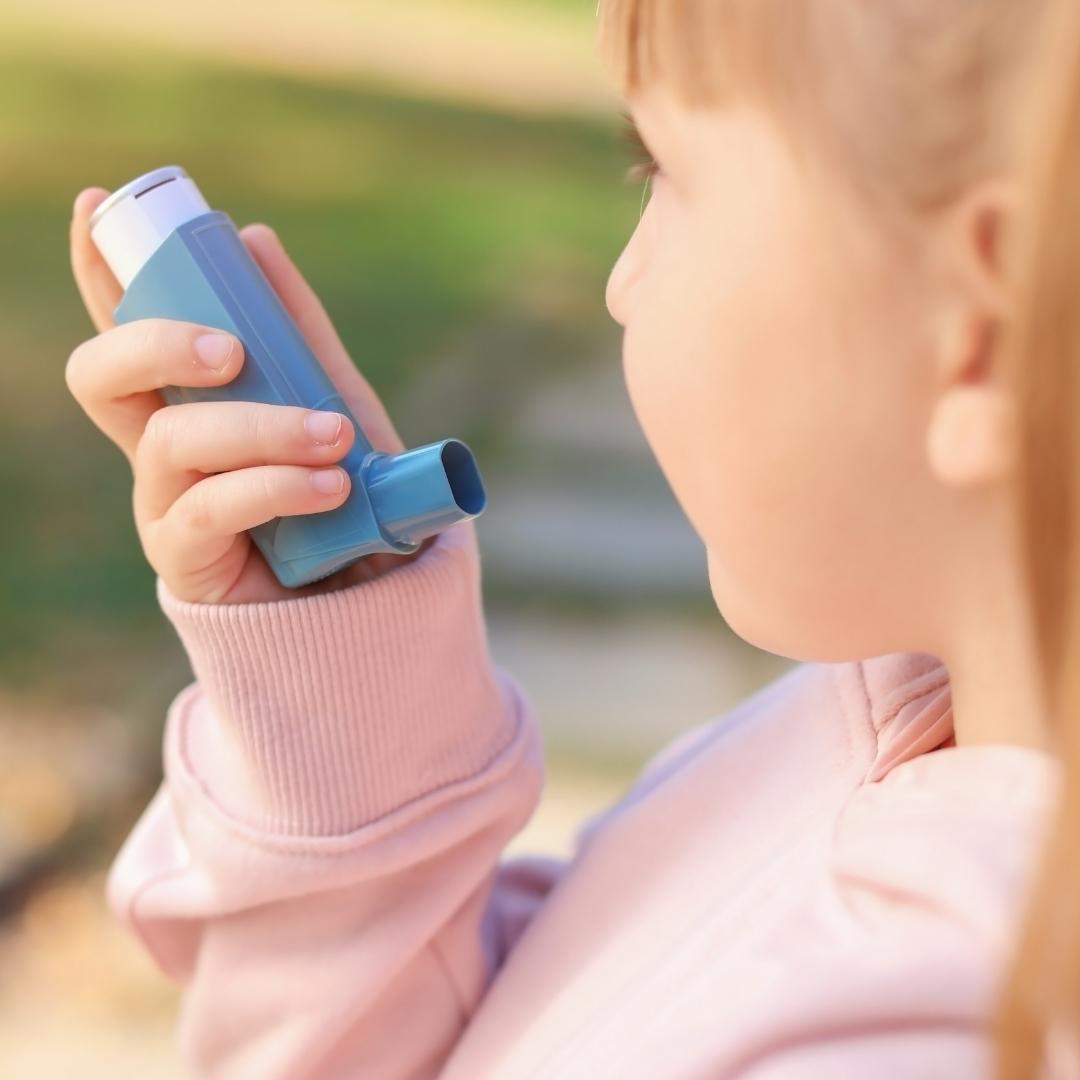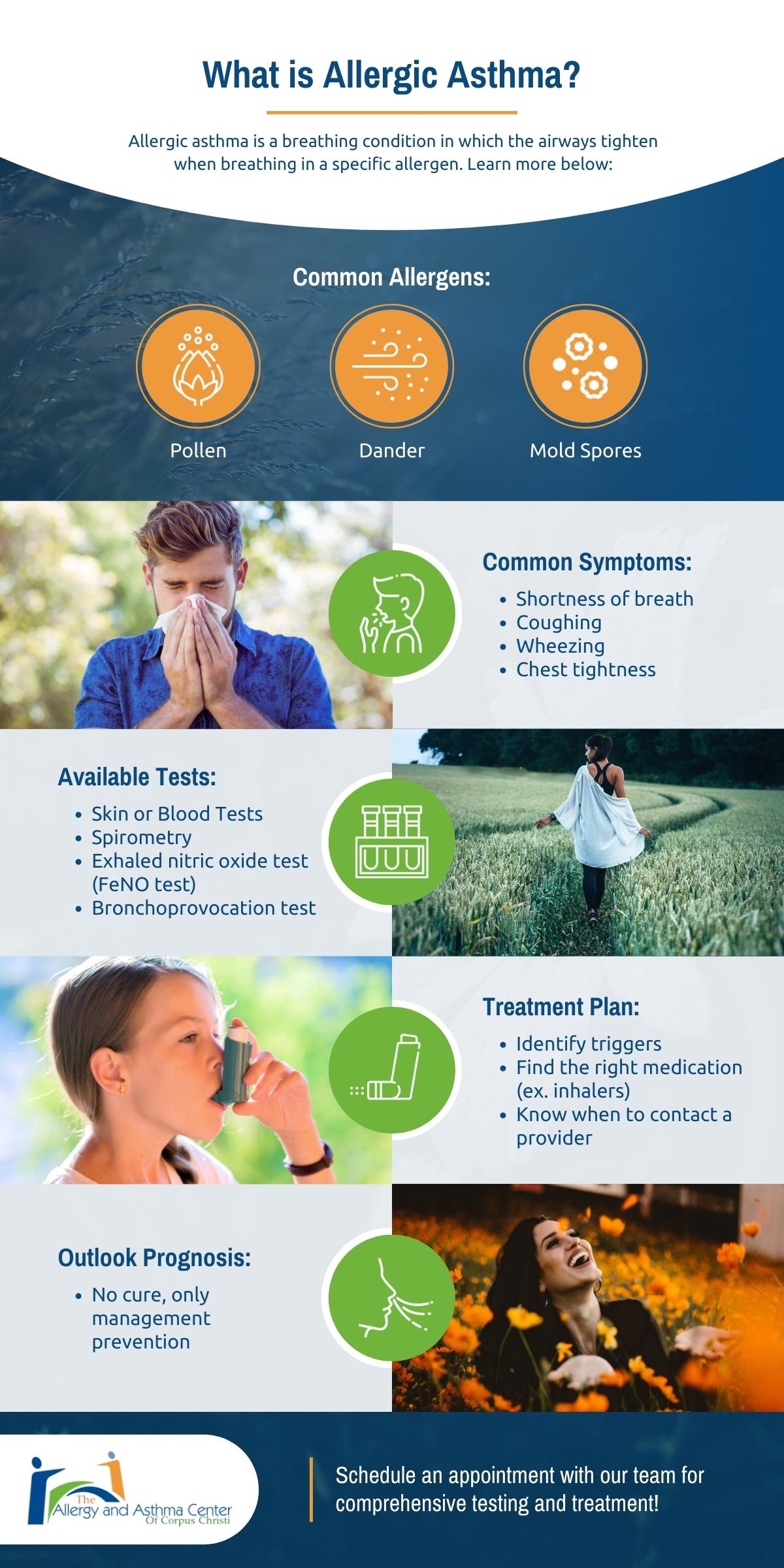What is Allergic Asthma?

Over the past few years, there has been a big emphasis on lung health, especially with the increased viruses and allergens in the air. When you struggle with allergies, you understand how miserable it can be. The itchy eyes, sneezing, and sinus pain — now add to breathing difficulties that many Americans struggle with due to asthma or allergies. According to the Asthma and Allergy Foundation of America, asthma affects 25 million Americans, with 60% classified as having allergic asthma. But what exactly is allergic asthma, and could you be suffering without knowing?
At The Allergy and Asthma Center of Corpus Christi, we have more than three decades of experience in providing high-quality asthma care, diagnosis, and treatment. Keep reading to learn more about allergic asthma and schedule an appointment today with our allergy doctor.

Symptoms & Causes
Allergies can affect what foods you can eat, the products you can use, and even your breathing. When these allergies contribute to severe breathing issues, it is called allergic asthma. Allergic asthma is a breathing condition in which the airways tighten when breathing in a specific allergen. Common allergens that trigger allergic asthma include pollen, dander, and mold spores.
Everyone experiences these types of allergens differently. Some people have an extreme allergic reaction to these allergens due to their body’s response. When your body experiences a threat (the allergen) it can react in ways to protect you, including releasing a chemical called immunoglobulin E (IgE). While this is supposed to protect your body, some people experience high levels of immunoglobulin E, which causes the tightening of their airways, restricting their breathing. Other symptoms include:
- Feeling short of breath
- Coughing frequently, especially at night
- Wheezing (a whistling noise during breathing)
- Experiencing chest tightness (feels like something is pressing or squeezing your chest)
Allergy doctors are unsure exactly what causes this specific reaction in certain people, but you should seek the care of an allergy or asthma specialist to help identify triggers and treatment options.

Diagnosis & Tests
To fully understand the extent of your allergies, it is imperative to find a specialist. If you do not have a primary care physician, you can perform a Google search for “allergy doctor near me” or “asthma care near me” to find the closest clinic. Once you secure a healthcare provider and schedule an appointment, several types of tests can be performed for allergic asthma. For example, a blood or skin test, while uncomfortable, can help show how you react to common allergens. Asthma-specific tests include:
- Spirometry
- Exhaled nitric oxide test (FeNO test)
- Bronchoprovocation test
You can also help in your diagnosis by keeping a log of when you experience severe allergy symptoms.

Management & Treatment
Once you are diagnosed with allergic asthma, it is critical to put together a cohesive management plan. Ways to manage your allergic asthma include:
- Identifying triggers
- Finding the right medication (ex. inhalers)
- Know when to contact a provider

Outlook Prognosis
While there isn’t a cure for allergic asthma, many individuals can manage their symptoms and still live a full life. By identifying your triggers and creating a safe environment, you can help minimize your symptoms and risk of a severe asthma attack.
Allergic asthma can be scary. Having the right physician and care team makes all the difference. If you are looking for an allergy doctor in Corpus Christi, our team at The Allergy and Asthma Center offers comprehensive testing, diagnostics, and treatment plans to help make your condition more manageable. Schedule an appointment today!
Schedule an Appointment!

